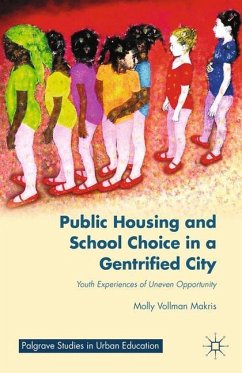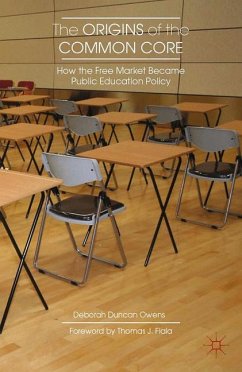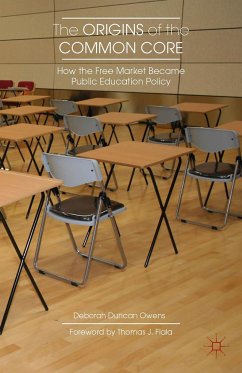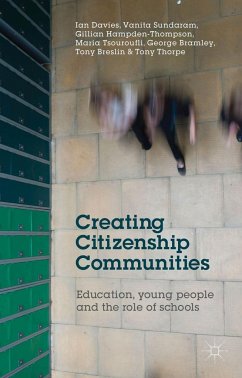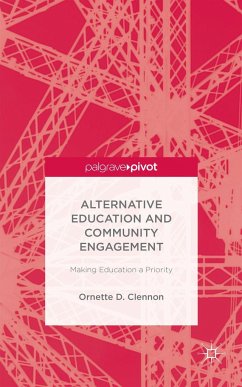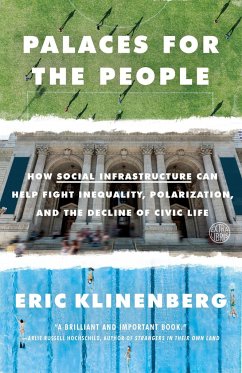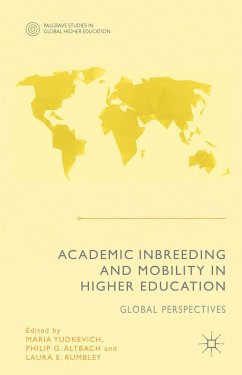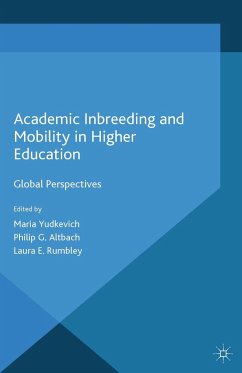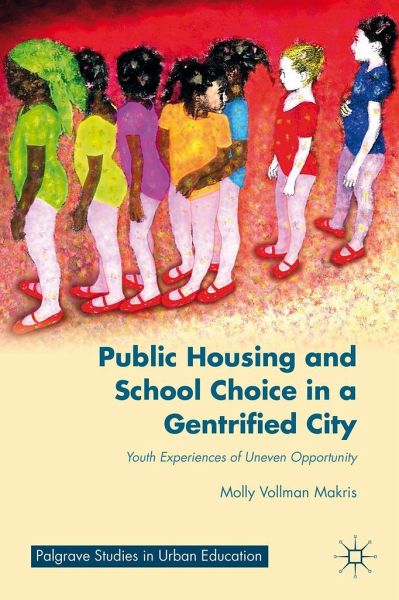
Public Housing and School Choice in a Gentrified City
Youth Experiences of Uneven Opportunity
Versandkostenfrei!
Versandfertig in 6-10 Tagen
38,99 €
inkl. MwSt.
Weitere Ausgaben:

PAYBACK Punkte
19 °P sammeln!
Winner of the 2016 AESA Critics' Choice Book Award
Molly Makris uses an interdisciplinary approach to urban education policy to examine the formal education and physical environment of young people from low-income backgrounds and demonstrate how gentrification shapes these circumstances.
Molly Makris uses an interdisciplinary approach to urban education policy to examine the formal education and physical environment of young people from low-income backgrounds and demonstrate how gentrification shapes these circumstances.



